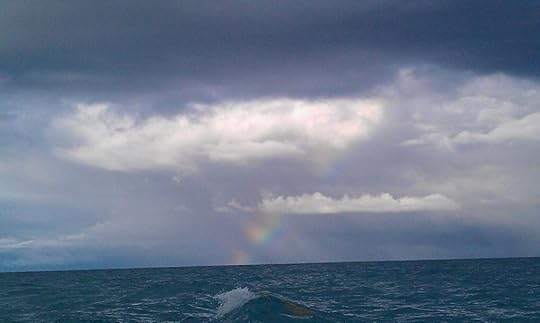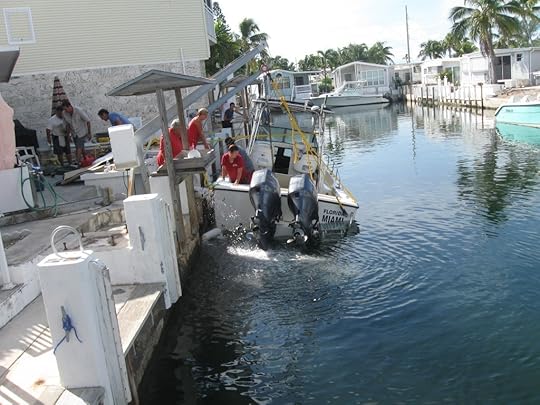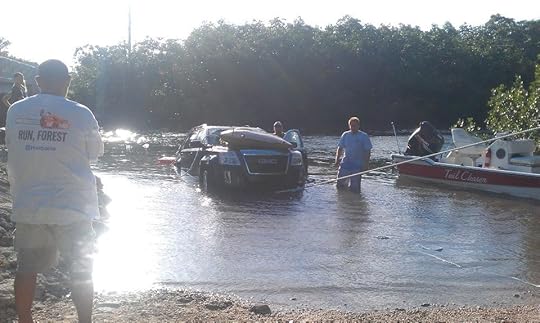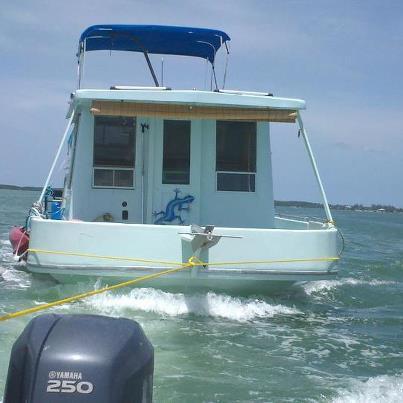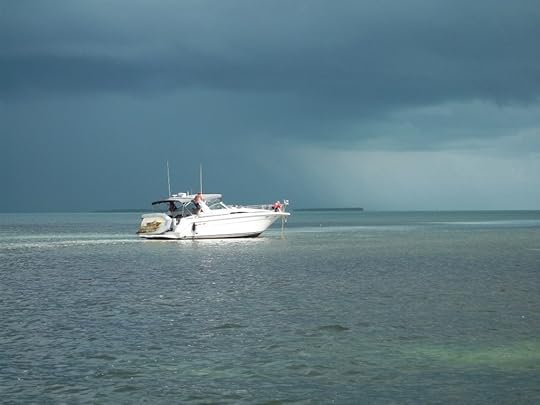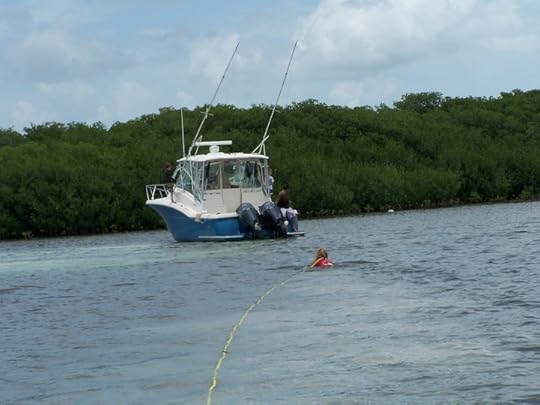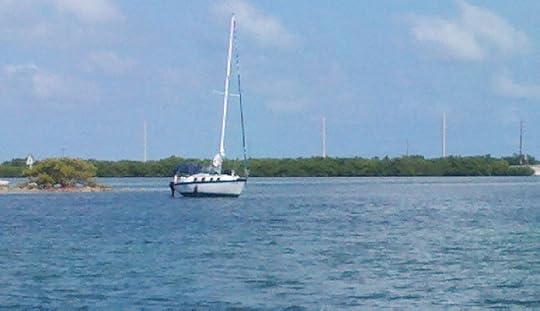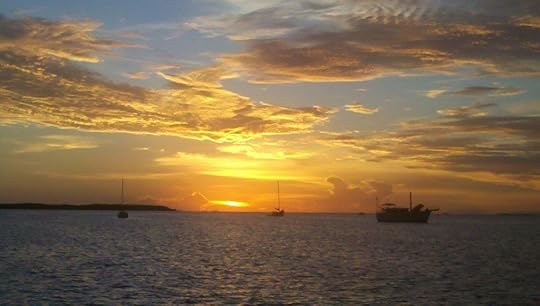Guest Blogger — Captain/EMT Diana McCune
C.E. Grundler
It’s been some time since Christine Kling invited me to guest post here on Write On The Water, and that opportunity is something I’ve always appreciated. Recently I’ve begun corresponding with another boater/writer, and I’m fascinated by the experiences she has and the stories that accompany them. Captain/EMT Diana McCune is one third of Poseidon Marine Towing and Salvage, an all-woman TowBoatUS operation out of Tavernier, Florida. The company was founded by her mother-in-law, Barrie McCune, and father-in-law, Don McCune, and they operated independently for a few years before joining TowBoatUS in 1988; ten years later Diana and her husband Lee joined the family business. Sadly, in 2007 Don passed away, followed by Lee in 2010. Diana and her mother-in-law continue to operate the business and have been joined by another Captain, Debbie LaPointe. They have a diver, Jerry Sanders, on call as well. A quick visit to their Facebook Page offers a fascinating glimpse into their day-to-day operations, including some photos that look like they came straight out of SeaWorthy, BoatUS’s publication.
While Diana has some other writing in the works, I felt that the readers at Write On The Water would love to hear her insights into the experiences of a tow boat captain, in this case, on what to do and what not to do when your draft exceeds the water’s depth in her neck of the waters.
Grounding in the Keys – Capt. Diana McCune
Summer time has many boaters traveling to areas that they may never have been before, exploring new ports. Here in the Florida Keys with our Coral Reefs and Shipwreck’s for diving we draw a large amount of boaters each summer. Our Island lifestyle has an appeal to many boaters. With this Island Style also comes our very sensitive ecosystem. With one item damaged in this system chain the whole thing begins to collapse. When a boat hits our reefs by running aground or dropping anchor where they shouldn’t, it damages this environment, starting a chain of events that is hard to reverse. This is just the Ocean side of our ecosystem. On the Bayside we have many shallow areas and we have the Everglades. These areas have Turtle Grass that is important to our ecosystem, it is where crabs, lobsters, and baby fish feed and hide. If this is damaged it takes years to regrow and in some places it never grows back. All throughout the Florida Keys there are National Parks. Everywhere you go by boat you are in a National Park. Each of these Parks has different rules whether for boaters or for when you’re on land. If you find as a boater you happen to run aground in one of these parks, (remember ALL of the Florida Keys are a National Marine Sanctuary, just a matter of whose Park you’re in.) These are some helpful tips to keep you from getting into a lot of trouble with the Rangers or Law Enforcement.
If you’re a power boater and you run your vessel aground the first thing you need to do is, turn off your motor. DO NOT try and power out. Not only will this keep you from damaging your motor if will also keep you from doing more damage to the ecosystem. When you try and power out you end up blowing a hole in the bottom of the Bay or Ocean floor destroying the ecosystem. Now for the person or Marine Assistance Company that comes out to rescue you be it TowBoatUS or Sea Tow (these are the local Companies). When you blow a hole under a larger vessel you have just created a hole that your vessel will sit in, there for making it harder for them to pull you out. They can still do it. We have done it many times. I am a Captain/ Co-Owner of TowBoatUS Islamorada. We have seen many cases where this has been an issue. People just keep powering out trying to get out and end up sucking up mud and eventually heating up the engines until they blow them. So the best thing to do is shut the engines off and call for assistance from whichever company you have coverage with. They will ask for location and advise you that you are in a such and such park and do not power out. They will in most cases have to notify the Rangers for that Park or Law Enforcement for other locations depending on where you are located. These are the rules we have to follow them in order to be able to conduct business here.
For the sail boater that finds himself in the same situation you have the luxury of trying to first use your sails to get out. With most sailboats your keel stops you before you get too far in. Although with summer storms suddenly popping up there have been a few occasions where we have found a sailboat up hard aground and sometimes on her side. Turn off engines and generators and call for Marine Assistance. As with the power boater a Ranger or Law Enforcement will have to be called.
The second rule is when the officer arrives on scene, tell the truth. They are trained to see the damages that have been done. The scars that props and Keels make in ecosystem are long lasting and they can see the way you ran aground. It doesn’t help to lie and they are far easier on you if you tell the truth.
I hope this helps you on your travels to our Paradise. We in the Marine Assistance are here to help you enjoy your time here. If you need help in anyway feel free to call your local company that you are signed up with. We all listen up on Ch. 16 on our VHF’s or you can give us call by phone. We have all the local knowledge and can point you in the right direction for a mechanic or place to moor up for the night.
I hope to see you on the water as you drive by of course, not as a customer. Be safe out there.
Capt. Diana McCune
Share on Facebook

